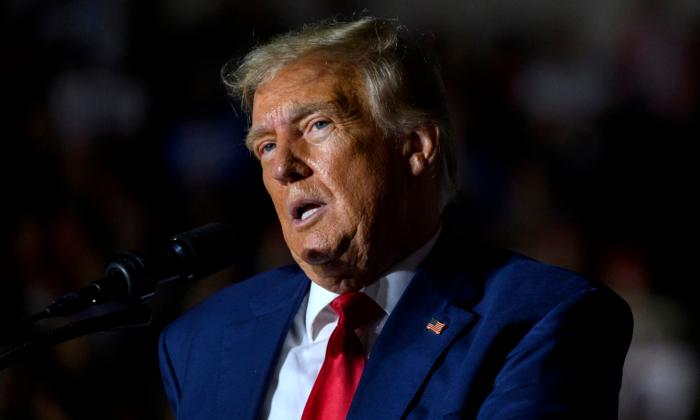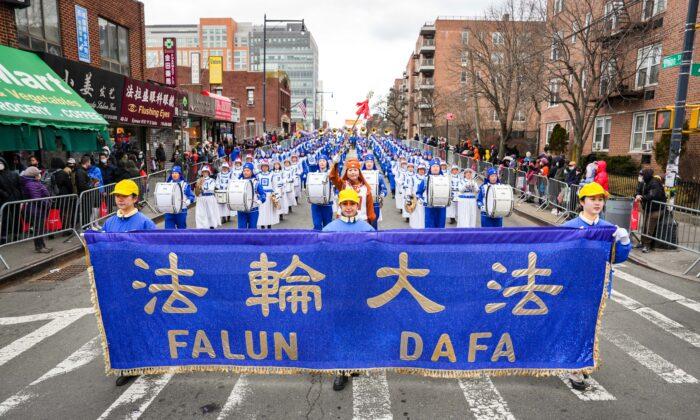The Chinese communist regime has been waging a stealth war against the West, deploying all spheres of society in its plan to supplant the United States as global leader, retired U.S. Air Force Brig. Gen. Robert Spalding says in his new book.
And it’s been the elites of the United States, the author said, who have allowed this offensive to go unchecked.
Game of Deception
Spalding, former chief China strategist for the chairman of the Joint Chiefs of Staff at the Pentagon, and former senior strategic planner for the White House on the National Security Council, said his experience as a former Air Force pilot of the B-2 Spirit, also known as the stealth bomber, helped him to uncloak the regime’s strategy—one that is hinged upon obfuscation.“The [Chinese regime’s] primary strategy ... is to literally hide everything that they do,” he said.
In the book, Spalding details how, for the past 40 years, the Chinese Communist Party (CCP) has been playing a “sophisticated yet simple” game: “It is a competition to gain control and influence across the planet—and to achieve that outcome without resorting to military engagement.”
The CCP “has weaponized the entire society essentially to work for its own benefit,” he said.
Its tactics are wide-ranging, and include “acquiring technology without paying a cent toward developing it, carefully taking control of the world’s shipping businesses, infiltrating our corporations and science laboratories, and using American investor dollars to float the cost of its own factories and companies—and then ... insisting that the money stay in China.”
For Spalding, the process of realizing the true nature and scope of the CCP’s threat was a gradual and trying one.
He fell in love with the country while studying in Shanghai from 2002 to 2004. And like many before him, he took at face value the things his Chinese friends and colleagues told him—not realizing that those talking points were narratives instilled by the CCP over years of careful indoctrination.
“I [was] hearing over and over and over again how the Chinese people just could not handle democracy,” Spalding said.
“I would think at the time, if I was saying something like that, that would be incredibly racist: Like you don’t have the capacity to understand democracy and actually adopt freedoms, which we believe to be a universal human right.”
It’s a testament to the power of the Chinese regime’s censorship, Spalding said, adding that it has not only been “bamboozling us, but bamboozling the Chinese people.”
“It really is a tremendous ability on the part of the Chinese Communist Party to take the narrative about China and the Chinese people, and create a narrative that even the Chinese people begin to adopt and then ... sell as their own.”
It wasn’t until years later, when Spalding decided to get to the bottom of what the CCP was, that the penny started to drop. This endeavor involved poring over thousands of pages of CCP documents.
“It doesn’t come to you all at once,” he said, adding that he initially resisted coming to the realization.
‘Professional Liars’
“The CCP are professional liars who have had exquisite training,” Spalding writes in the book.The retired general personally experienced this when dealing with counterparts in China’s People’s Liberation Army (PLA) during his time as China strategist at the Pentagon.
“They speak impeccable English. They know all of the arguments that ... are the responses to [your] questions,” he said.
Those PLA officers are not only coached, but also graded on how well their answer fulfills “the Communist Party mandate and also how loyal they are to the party.”
“They know better than you do. They know what your predecessor said, they know what your predecessor’s predecessor said, and they know what your predecessor’s predecessor’s predecessor said.”
Funding China’s War
Part of the Chinese regime’s undercover war is on the economic front.Through public pension and retirement funds, U.S. investors have poured billions of dollars into Chinese companies that aren’t subject to the same financial disclosure obligations as U.S. companies, Spalding said.
Again, the name of the game is obfuscation.
“The retirement fund of the American military, ... members that are guarding this country, their money is going to be taken and given to a potential adversary like AVIC to build weapons that they may have to defend against in some future conflict,” Spalding said.
“It boggles your mind.”
Flush with foreign investment, the Chinese regime then uses this money to invest in and acquire U.S. companies that have innovative technologies.
They then take this technology back to China and “subsidize that production by, for instance, ... giving free electricity to the owners of the factory,” he said.
The cheap products are then dumped in the U.S. market, where they’re able to undercut American businesses, thereby destroying the competition.
On top of that, the regime steals U.S. intellectual property through a variety of channels, including cyber hacking and human sources. For instance, Chinese nationals or ethnic Chinese would work in U.S. companies or research labs, then take the trade secrets back to China.
Investing in Our People
To guard against and counter the CCP’s efforts, Spalding said the United States needs to do three things.The playbook is: “Educating and advocate; begin to defend ourselves; and then be more proactive ... invest in our country, invest in our people.”
The retired general thinks that Washington is making headway in the first two areas, but “the third one, that’s not happening, that absolutely must happen, is that we have to invest in our own people.”
For example, “you could do things like invest in our infrastructure,” he said. “You could invest in manufacturing, you can invest in research and development and you could invest in STEM [science, technology, engineering, and mathematics] education.”
Spalding believes the United States has a way out of this predicament by holding true to its founding principles as embedded in the U.S. Constitution.
“That’s what’s going to save us,” he said. “That’s what’s going to propel us into the future.”





Friends Read Free